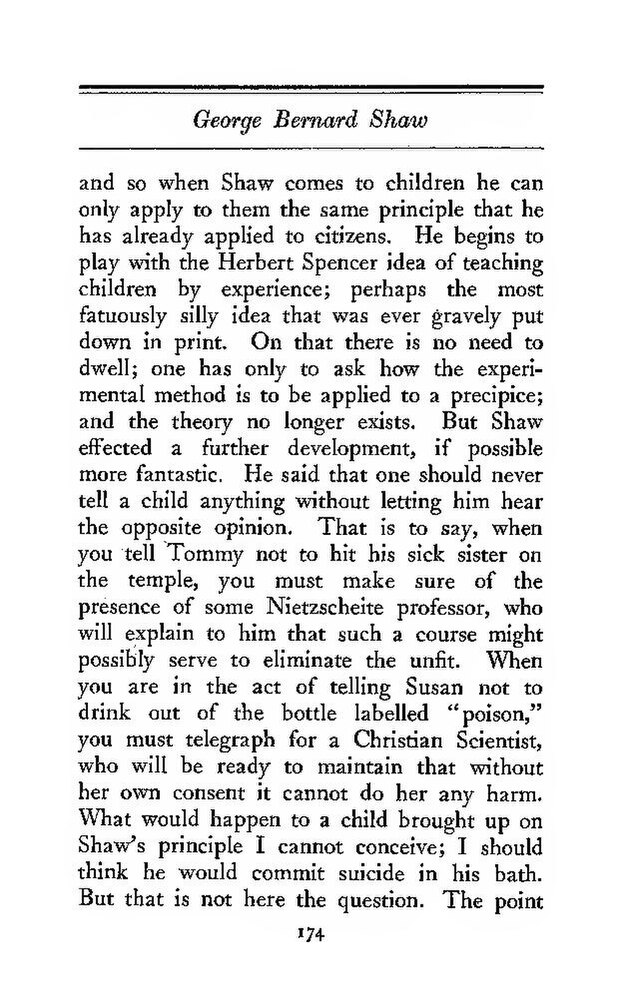and so when Shaw comes to children he can only apply to them the same principle that he has already applied to citizens. He begins to play with the Herbert Spencer idea of teaching children by experience; perhaps the most fatuously silly idea that was ever gravely put down in print. On that there is no need to dwell; one has only to ask how the experimental method is to be applied to a precipice; and the theory no longer exists. But Shaw effected a further development, if possible more fantastic. He said that one should never tell a child anything without letting him hear the opposite opinion. That is to say, when you tell Tommy not to hit his sick sister on the temple, you must make sure of the presence of some Nietzscheite professor, who will explain to him that such a course might possibly serve to eliminate the unfit. When you are in the act of telling Susan not to drink out of the bottle labelled "poison," you must telegraph for a Christian Scientist, who will be ready to maintain that without her own consent it cannot do her any harm. What would happen to a child brought up on Shaw's principle I cannot conceive; I should think he would commit suicide in his bath. But that is not here the question. The point
174
